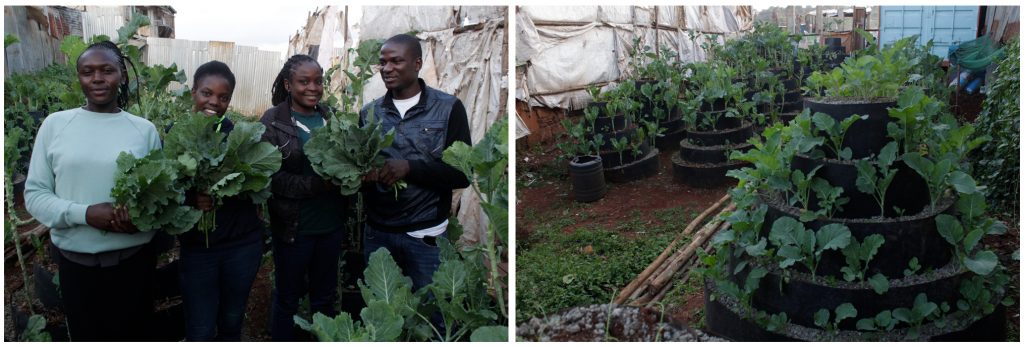
Left: Urban farmer Victor Edalia (in white shirt) with three beneficiaries of his free veggies (left to right): Sheila Musimbi, a single mom; Celine Oinga, who comes from a family of 9 siblings; and Jackline Oyamo, jobless due to the pandemic. Right: Edalia uses modern urban farming methods, including this spiral planter that holds up to 100 seedlings. Photo: THOMAS BWIRE
In April, Jackline Oyamo, 31, was laid off from her job as an electronic sales assistant at a shop in Kibera, one of the world’s largest slums on the outskirts of Nairobi, Kenya. The curfews to control the pandemic meant fewer customers – and staff cutbacks. “After losing my job, it was extremely difficult to keep feeding myself after I exhausted my small savings,” she says.
But Oyamo is able to get fresh produce for free from Victor Edalia, a 30-year-old urban farmer in her neighborhood. Last November, Edalia, who works as a driver by day, converted a trash dump site in the slum into an urban garden. He signed an agreement with a local chief to use the land. Now, the plot, about a quarter of an acre, grows vegetables such as kale, onions and spinach.
Edalia originally started the farm to boost his income. The idea was to sell vegetables to hotels. But once the pandemic hit, he changed the plan. He wanted to find a way to “give back,” he says.
READ THE ENTIRE STORY: https://www.wxxinews.org/post/how-6-problem-solvers-tackled-pandemic-challenges-their-neighborhoods




















